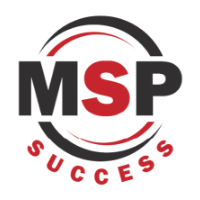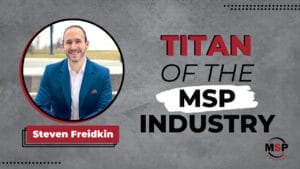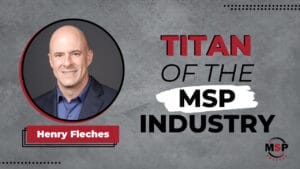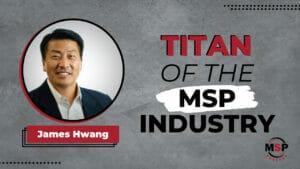Rashaad Bajwa, CEO of Integris, details the importance of specialization, employee investment and AI for small MSPs in the ever-changing IT industry
Note: This article was taken from a live interview and has been edited for length and clarity.
Rashaad Bajwa ran Domain, a small MSP out of New Jersey, for nearly three decades before stagnation forced him to evolve. Through a masterwork of M&A, he formed Integris, a wildly successful MSP that’s only just reaching its third birthday.
Robin Robins, founder of MSP Success Magazine and Big Red Media, spoke with Rashaad to get the inside scoop. From retaining great talent by creating opportunity to mastering his local legal vertical with astonishing proficiency, any MSP looking to replicate his success will benefit from his trade secrets.
Robin Robins: Integris is, if not the largest, one of the top three largest MSPs in the United States. You’re generating $150 million in revenue through 22 offices in 11 states with a year-over-year increase of 483,018%. Tell us about this amazing growth.
Rashaad Bajwa: We’ve been heavily involved in M&A. The thought process for growth was about bringing together premium MSPs. To us, premium meant MSPs going after premium clients who were operationally mature with a high security, regulatory or compliance need and who value a high-quality MSP as opposed to a commodity MSP. It’s been a fun ride and, luckily, we’ve had a lot of success. But the cool thing is bringing a lot of like-minded companies together and building something big, something that is more mature than we could have done as individual MSPs.
Robin: And what made you decide to start Integris? Was that your idea, or was there a private equity firm that brought you in?
Rashaad: We started on our own, but then we very quickly – almost within the first year – were private equity sponsored by Frontenac. The thought process was that we were getting approached by a lot of other platforms to join them because we had a very operationally mature MSP out of the New Jersey and Maryland area. Rather than join some other MSPs, we decided to join a few of our kind of highly respected peers together and then got a private equity sponsor.
Having access to that capital just makes more opportunities. That’s all it does. We wouldn’t have been able to do this if we were only spending our own capital. The reality is there’s a whole bunch of other folks who believed in what we were doing. They had the capital, and we had the know-how. It’s a great symbiotic relationship. It’s very difficult to be competitive when you don’t have that same access to capital.
Robin: Let’s talk a little bit about AI. Are you using AI in any capacity for service operations?
Rashaad: Yes, we’ve been using AI to help with our service work. It’s about pattern recognition. Let’s say we have a million tickets a year. That’s a lot of data that has been documented. The AI starts seeing these complaints and connecting the dots to the solutions. And guess what? It can figure out your solutions for you, or at least present them up nicely for the tech. So, yes, that sort of stuff we’re already doing. A lot of that’s in testing phases because it’s processing our data and we do have concerns about privacy. We’re very hesitant to put data up to something like ChatGPT, where you don’t necessarily know what they’re doing with it.
Robin: What do you see as the biggest challenges for you or any MSP? How are you overcoming them?
Rashaad: One of the biggest challenges is to access high-quality talent. There is a lot of competition for talent. There have been a lot of layoffs in the tech industry recently, especially in the larger companies that hired too many people during Covid. So, it’s easy to think that there is plenty of talent available. But most MSPs were quite responsible, so getting access to high-quality IT resources and staff is challenging. What’s interesting is CalTech, our most recent merger out of Texas, has a systemized mechanism to solve that exact problem. They have a great recruitment pipeline and platform in place. Our New Jersey MSP has an apprenticeship. Finding new, novel ways to address the talent gap is crucial to overcoming that challenge. I think that is a big differentiator between success and failure in the MSP space.
Robin: What are the keys to retaining that high-quality talent, once you have it?
Rashaad: Career opportunity is key. Back in New Jersey, the MSP had grown so much that there was nowhere for our best people to go but to other companies. That’s part of what prompted us to make Integris a reality; our growth allowed our top leaders to find new opportunities inside the company, instead of leaving for a Fortune 500 company. There has to be enough room for people to continue to grow. Show them a good career path and plenty of opportunity. In some cases, that opportunity may even organically grow your business.
Directly investing in people is essential as well, of course. One of things scaling allowed us to do was to build our own leadership academy. Something like that lets people know we’re invested in them; in exchange, they become far more loyal to the brand. It makes them proud to be an employee of Integris. Because of that, it’s not just marketing when we make those Best Places To Work lists. It’s something real and substantial as well.
Robin: In addition to talent acquisition, what other challenges are you seeing for MSPs and yourself, and how are you overcoming them?
Rashaad: Cyber security is a critical issue, especially when combined with the regulatory and compliance factors of certain industries, such as legal and financial services. The increase in compliance considerations in these industries is forcing clients to have a responsible IT mindset. They’re not just seeing IT as a strategic imperative or a necessary evil; they’re seeing it as a differentiator against their own competitors. These companies are realizing that if they can leverage technology efficiently when working with their clients, they’ll stand out from their competitors. That said, the challenge is to gain the experience necessary to work with these specialized clients effectively. Learning the nitty-gritty details of industry compliance takes tens of years of experience, which can be difficult to gain since it’s very specialized knowledge.
Robin: What are the opportunities and challenges that other MSPs need to be thinking about in order to compete in the next 12 to 24 months?
Rashaad: My advice is to get some specialization because it will allow you to differentiate. Because the other issue we’re running into is because of the labor shortages we have, we’re competing constantly with people all over the world. If all you’re doing to define yourself as an MSP is fixing computer problems, you need to differentiate because that’s going to start phasing out. We must figure out how to show value to our clients. That’s more than just connecting the dots. We have to have a more complex sale.
When the cloud first came out, many people in tech said it was going to be the end of us. But it was actually the opposite; the cloud has become increasingly complex, and physical servers are starting to go away. So, rather than dusting a server, our job becomes about managing a VM in the cloud. And securing something intangible is obviously more complex, since you can’t just lock the door to the server closet anymore. Although, I think there’s an opportunity here with this complexity. For those of us who understand the complexity and can show our clients how to leverage this complexity in their businesses, I think it’s going to be a greenfield opportunity. There’s a lot of opportunity for those of us that get that right.
Robin: And when it comes to marketing for trust-based client relationships like this, where are you directing your marketing efforts?
Rashaad: Well, this is a bit of a shameless plug, but we started a business many, many years ago because we were big believers in trust-based marketing. It’s called Biz Ratings and it’s all about reputation marketing. The thesis being that your best marketing is what you’ve done for other people; that’s what builds trust. Ideally it comes from referrals, but you can’t control that. That happens whenever it happens. The next best thing you can do is put all your referrals out in front of people – whether it be as testimonials, online reviews, etc.
We make sure to spend our money on areas where people are going to research us, such as online directories or review sites. But more essential than that is spending money to get involved in key associations in our chosen verticals. Of course, potential clients won’t trust us just because we become sponsors. They’re going to trust us because the other people in their network say good things about us. It’s all about networking and making connections.
The other marketing area of spend is getting our subject-matter expertise into different publications and blogs. That’s about having a voice and becoming an authority on whatever topic or industry. If we’ve written some sort of subject-matter article for a trade industry publication or local association, that’s the sort of stuff we want our audience to see. That’s the stuff that makes people realize we know what we’re talking about.
Robin: Is there anything else you want to add for other MSPs out there?
Rashaad: Narrow in on an area, focus on it, build a brand, build a reputation and be trustworthy. As long as you’re trustworthy and known in that circle as being trustworthy, then your reputation precedes you.
Trust is our currency in this industry, and reputation is everything. That’s what we’re selling. The reason these clients are willing to use us and pay what they perceive as a premium is that they see what we’ve done in the past and believe our reputation will deliver a specific outcome. That’s why we shouldn’t be bashful about charging a good rate if we have the best people and the most knowledge. That rate allows us to continue providing quality services to the client for years to come.






